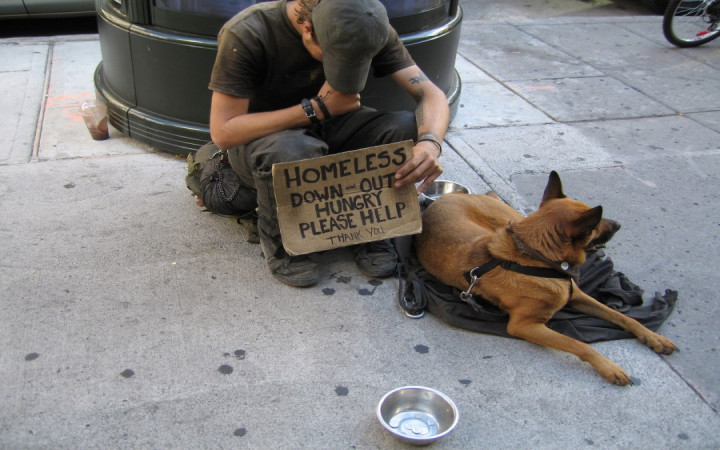It's been a long day at school. You've paid attention in class, worked hard on your assignments, and even done your best on a test. It's the end of the day and you look forward to going one place: home. That's right: home, sweet home. There's no place like home!
But what if you didn't have a home? Could you imagine that? Where would you go? Where would you sleep? Where would you put all your “stuff"? Sadly, for millions of Americans each year, they have no answers for those questions. Who are these people? They're the nation's homeless.
Although most people in the United States have homes with warm beds to sleep in each night, many people do not. Homeless people are usually defined as those not having a regular, safe place to sleep each night. Without a home to call their own, they must sleep on the streets, in abandoned buildings, in parks, in shelters, at friends' homes, or in a vehicle.
In addition to lacking a home, homeless people often lack many other things, such as jobs, healthy food to eat, clothes to wear, and access to medical care. Without a home and these many other things most of us take for granted, homeless people face an uphill battle to regain the basic necessities they need to survive.
If you live in a large city, you've probably seen homeless people sleeping in public places and asking for help on street corners. Homelessness isn't limited to large cities, though. People in small towns and rural areas experience problems with homelessness, too. It is a nationwide issue.
Experts estimate that as many as 3.5 million people (nearly a third of them children) will probably experience homelessness in any given year. At any one time, there are about 750,000 homeless men, women, and children in America. It doesn't matter what color your skin is or what culture you come from, homelessness affects everyone.
People become homeless for a variety of reasons. Two of the most common reasons are economic and intertwined with each other: (1) they don't have a job or make enough money to own or rent a place to live; and (2) there is a shortage of affordable housing where they live.
As the economy has slowed in recent years, poverty rates have risen dramatically. Today, nearly 15% — or over 45 million people — live in poverty in the United States. The result is that some people simply cannot afford a place to live despite working every day of the week, often at more than one job.
Other people lose jobs and cannot find new ones in today's tough economy. When people live paycheck to paycheck with no savings, all it takes is one catastrophic event, such as the loss of a job or a major illness, to lead to missed rent or mortgage payments and eventually foreclosure or eviction.
Each homeless person's story is unique. Many other factors contribute to homelessness. For example, some homeless people suffer from physical or mental disabilities that make it hard, if not impossible, to find work to support themselves. Other homeless people struggle with drug and alcohol addictions that drain their financial resources and affect their health.
Many homeless women and children are fleeing from abusive relationships. Domestic violence is a serious issue that many people struggle with. Sometimes choosing homelessness is preferable to suffering physical or mental abuse.
Sadly, many homeless men are veterans. When returning from armed conflicts abroad, many soldiers suffer from post-traumatic stress disorder, which can lead to mental illness, substance abuse problems, and inability to hold a job.
Whatever the reasons for homelessness, there are many people working hard to help the homeless. From individuals working at homeless shelters to city, county, state, and federal government programs, efforts are being made to provide more affordable housing and good-paying jobs, as well as necessary food and medical care, to the homeless.
A person might only be homeless for a day or a week, while others might remain homeless for months, years, or their entire lives. Each person can do his or her part to help the homeless, whether it's volunteering time at a local shelter or providing food, clothing, or money to help the homeless. What can you do in your community?




